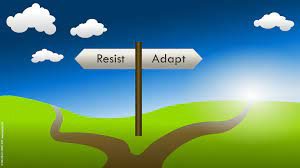
The Covid-19 pandemic forced many small businesses to become resourceful and innovative about how they conducted business. While we are all still on the road to recovery, some of the hybrid business models used to adapt that came from necessity may be here to stay. Below are four ways small businesses adapted in response to the pandemic that may have long-lasting effects on future operations, according to industry experts and small business owners.
1. Creative business models
The pandemic forced businesses to find new ways to serve their customers. Now that small-business owners have built out and refined new infrastructure, like curbside pickup and e-commerce operations, they can continue using the new hybrid business models they adopted during the thick of the pandemic.
For example, Keith Wallace, the founder of the Wine School of Philadelphia, was facing possible bankruptcy within several weeks of the pandemic shutdowns. Unable to open the doors of his business’s in-person-only classrooms, Wallace had to cancel wine classes for thousands of people. Realizing the only way to survive was to pivot quickly and try something more adaptive to the circumstances, he repurposed his office into a recording studio, turned the main classroom into a video studio and taught himself how to produce and edit videos.
By September 2020, the school launched its first online-only Level One Sommelier Course, an eight-week program. By December, Wallace was able to recoup about 30% of the business’s income through the online programs. Now, he is working on launching three additional online programs nationally within the next year and plans to keep this change forever.
2. Investment in digital tools
Prior to the pandemic, many small-business owners used technology as a secondary approach to business. Clark Twiddy, president of Twiddy & Company, a family-owned vacation rental company in the Outer Banks of North Carolina, said “Previously, we were a company that welcomed guests at our front counters with a handshake and a smile”. When the company closed its in-person counters due to COVID, investing in technology enabled them to “deliver Southern hospitality in a way never before imagined.”
The company also started using Salesforce for customer relationship management, scaled up its phone technology to Genesys, a cloud-based system, and introduced an AI chatbot to help customers on its website.
3. Reconnecting with the community
During the pandemic, many small business owners stepped out into their communities to help. As a byproduct, many created generous goodwill and a much larger awareness to all that they are part of the community at large. Many small businesses were able to be there for their communities when the communities needed them the most, and this may, in the minds of many, remain a trend that will continue.
4. New opportunities
An April 2021 Federal Reserve report concluded that we’re unlikely to understand exactly how many small businesses have closed their doors since the start of the pandemic until it’s long behind us. But on the other side of that coin: 4.3 million businesses were formed in 2020, according to data from the U.S. Census Bureau. That represents a 24% increase in new businesses from 2019.
Nonetheless, not all the growth over the past year can be attributed to people finding their entrepreneurial spirit. Many employees who were laid off continued to work in their industry, such as real estate, marketing, or accounting. But out of necessity, they became self-employed business owners.
These self-employed professionals have found opportunities by connecting with other small-business owners looking to outsource back-office work they traditionally did themselves. The fundamental shift in the demand curve for new small businesses may well continue to create opportunities.
History has taught us that the greatest challenges often create opportunities. The opportunities that arose by way of innovation and resourcefulness in response to dire and rapid challenges presented by the Pandemic, may well remain part of our landscape.
***
